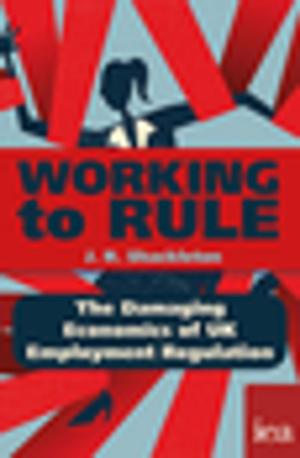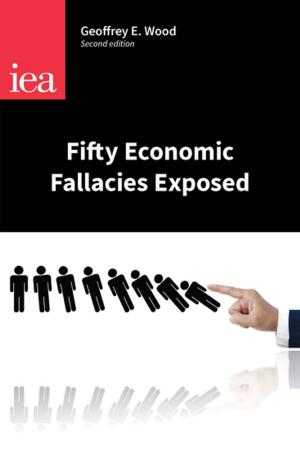Forever Contemporary: The Economics of Ronald Coase
Business & Finance, Economics, Theory of Economics, Nonfiction, Social & Cultural Studies, Political Science, Politics, Economic Policy| Author: | ISBN: | 9780255367127 | |
| Publisher: | London Publishing Partnership | Publication: | October 26, 2015 |
| Imprint: | London Publishing Partnership | Language: | English |
| Author: | |
| ISBN: | 9780255367127 |
| Publisher: | London Publishing Partnership |
| Publication: | October 26, 2015 |
| Imprint: | London Publishing Partnership |
| Language: | English |
Ronald Coase is one of the most important economists of the twentieth century. Amongst other great achievements, Coase taught us why firms exist and how we can better understand how to solve environmental problems. He also made a profound contribution to our understanding of the provision of so-called "public goods" and helped join the often distinct intellectual fields of law and economics. Coase coined the phrase "blackboard economics" to describe an approach to economics that involved ignoring what happens in practice and, instead, led the profession to obsess with theory. He once said: 'If economists wished to study the horse, they wouldn't go and look at horses. They'd sit in their studies and say to themselves, "what would I do if I were a horse?"'There is much that students, teachers, policymakers and regulators can learn from the economics of Ronald Coase, and he will, no doubt, provide a rich seam of material for decades to come. The authors of this short book have taken up the challenge. They apply Coase's ideas to a number of different areas of economics and, in doing so, provide a practical and very readable introduction to a number of topics that have direct relevance for regulation and for public policy.
Ronald Coase is one of the most important economists of the twentieth century. Amongst other great achievements, Coase taught us why firms exist and how we can better understand how to solve environmental problems. He also made a profound contribution to our understanding of the provision of so-called "public goods" and helped join the often distinct intellectual fields of law and economics. Coase coined the phrase "blackboard economics" to describe an approach to economics that involved ignoring what happens in practice and, instead, led the profession to obsess with theory. He once said: 'If economists wished to study the horse, they wouldn't go and look at horses. They'd sit in their studies and say to themselves, "what would I do if I were a horse?"'There is much that students, teachers, policymakers and regulators can learn from the economics of Ronald Coase, and he will, no doubt, provide a rich seam of material for decades to come. The authors of this short book have taken up the challenge. They apply Coase's ideas to a number of different areas of economics and, in doing so, provide a practical and very readable introduction to a number of topics that have direct relevance for regulation and for public policy.















